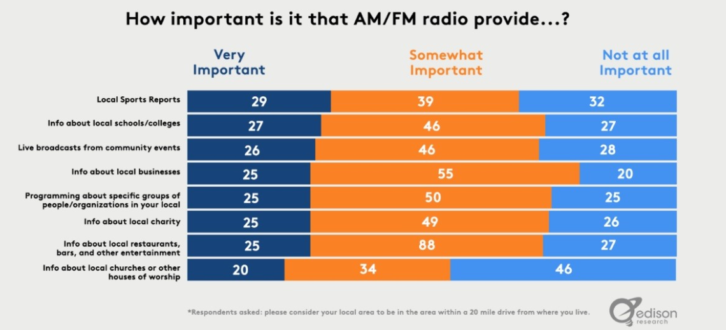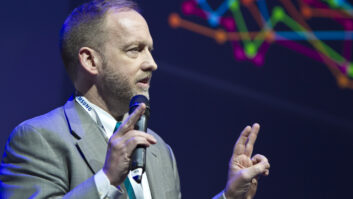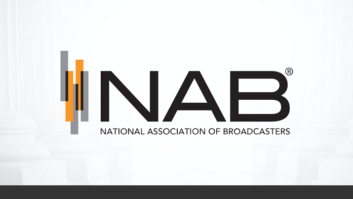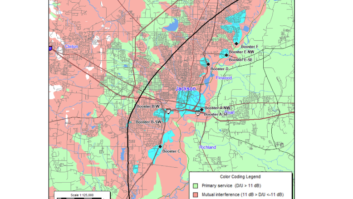Radio World’s “Guest Commentaries” section provides a platform for industry thought leaders and other readers to share their perspective on radio news, technological trends and more. If you’d like to contribute a commentary, or reply to an already published piece, send a submission to [email protected].
Radio World readers have been following our coverage of the ongoing debate over geo-targeting, of which has grown more contentious in recent months. Below, auto industry analyst Roger Lanctot provides another perspective.
The Federal Communications Commission is currently soliciting comments on a proposal to implement FM signal boosting innovations that will allow for the subdivision or segmentation of broadcast areas into separate zones targeting regionally unique audiences within existing authorized coverage areas. The technology will require no change in receiving equipment but will increase the relevance of local broadcasts – encompassing news, weather, sports, traffic, emergency communications, and, perhaps most importantly, advertising.
The FCC initiative has exposed the grim reality that the radio broadcast industry is almost completely bereft of leadership or advocacy when it comes to technological advances. In the absence of such leadership, from the likes of the National Association of Broadcasters or leading broadcast groups such as iHeartMedia or Cumulus, the industry is unable to advance, evolve, and compete effectively in a media marketplace increasingly dominated by tech giants such as Google, Amazon, and Apple.
The leading geo-targeting technology solution that has emerged, called ZoneCasting, is being introduced by a company called GeoBroadcast Solutions (GBS), which has been conducting tests of localized traffic broadcasts with locally relevant advertising in multiple U.S. markets with great success. The technology has the potential to enhance the relevance and therefore the value of radio advertising while opening up the medium to those advertisers that may have hesitated to take the plunge in the past because of the lack of localized options.
In spite of successful tests and the prospect of a revolution in radio broadcasting and advertising the NAB and large broadcaster organizations have come out against the new technology – even going so far as to browbeat major advertisers into rejecting the idea. Comments submitted to the FCC reveal the breadth and depth of the opposition – including factually compromised or misrepresented studies of the ZoneCasting solution itself or of the negative impact on advertising rates and revenue likely to result from implementation of the technology.
[Related: “Lobbying Around Geo-Targeting Continues“]
Uniquely mute in this debate has been the automotive industry. Whether they realize it or not, auto makers have a horse in the broadcast radio race. In the U.S., more than 50% of radio listening occurs in cars and radio remains the media source with the widest audience reach, according to multiple annual listener studies.

The NAB appears to be aping the stance of its large broadcaster members in opposing the idea of geo-targeted broadcasts, but this stance conflicts with its long-stated goals of engaging with the automotive industry. Perhaps NAB’s ill-considered position reflects its inability to understand the needs of radio’s broad constituencies which include radio listeners, in moving vehicles, who would welcome more relevant traffic reports and advertising or even minority populations with very local interests and needs.
NAB is missing a chance to join hands with auto makers in helping to bring this radical new broadcast solution to the market – maybe even touching off a competition to see which auto maker might be the first to take advantage of the new locally relevant content with new in-dash enhancements and user interfaces. Getting more accurately targeted traffic information would be a huge breakthrough as would bettered targeted advertisements (whether for hamburgers or politicians) – that might come with QR codes geo-targeted to the closest business location. Both of these scenarios have been tested and proven by GBS.
The forces arrayed in opposition to the new FM geo-targeting are challenging the findings of GBS’ tests of the new technology and raising the alarm that ZoneCasting will undermine the fundamentals of radio advertising. The testing arguments have been largely debunked by GBS in its FCC comments responding to these critics. The business model arguments – that geotargeted broadcasts will destroy radio advertising – are simply specious.
In fact, with ZoneCasting boosters, in-car listeners will be able to enjoy the benefits of HD Radio throughout more of the coverage area with a stronger signal.
[Read More Guest Commentaries Here]
Auto makers are in a unique position to make their voices heard in this debate. It is possible that the car companies, and their suppliers, have given up trying to influence the broadcast industry. NAB has been knocking on doors throughout the sector and the association has been successful in fostering an entente between the auto industry and Google when it comes to how radio is handled within the Android eco-system widely being implemented in automotive infotainment systems.
So, NAB has demonstrated that it can be helpful, but not in the case of geo-targeting. NAB’s efforts to engage with auto makers regularly fall short. Auto makers are particularly frustrated with the broadcast industry’s inconsistent execution and implementation of metadata which has made consistent the rendering of radio station information in dashboards an ongoing adventure.
The introduction of geo-targeted broadcasting has the potential to radically alter the perception and appreciation of radio. Like HD Radio, it has the potential to raise the relevance and value of broadcasts and enable new forms of broadcast advertising for a medium that still reaches the masses. It’s not too late for NAB to flip the script and get on board. It’s also not too late for auto makers to be heard in support of ZoneCasting.
Comments on ZoneCasting to the FCC can be uploaded on the FCC’s website.
This commentary initially appeared on Roger Lanctot’s blog, which can be found on LinkedIn.











